4 liquids you should never pour down your sink – and how to safely get rid of them instead
Protect your plumbing by never pouring these liquids down your drains again

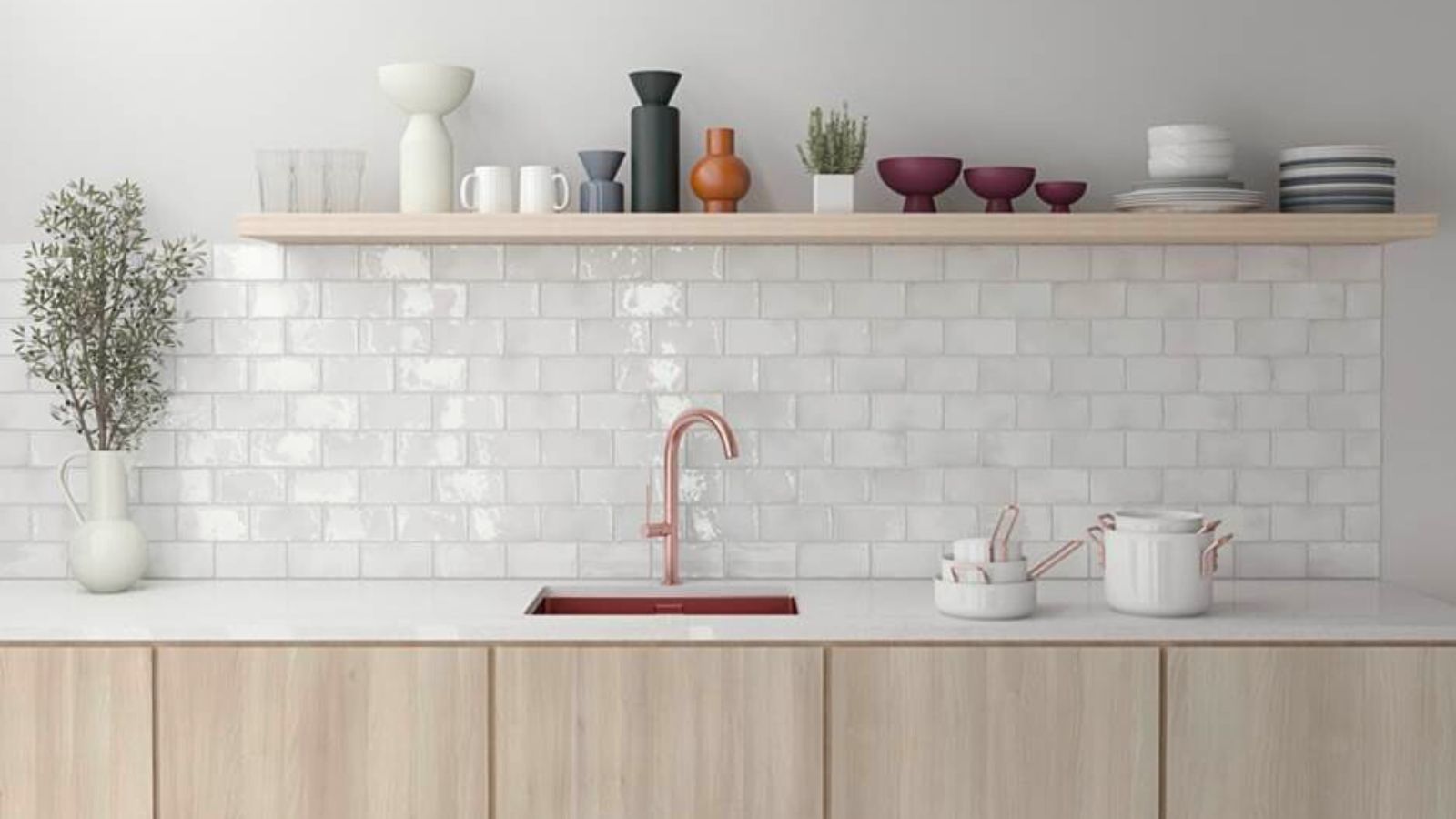
Design expertise in your inbox – from inspiring decorating ideas and beautiful celebrity homes to practical gardening advice and shopping round-ups.
You are now subscribed
Your newsletter sign-up was successful
Want to add more newsletters?

Twice a week
Homes&Gardens
The ultimate interior design resource from the world's leading experts - discover inspiring decorating ideas, color scheming know-how, garden inspiration and shopping expertise.

Once a week
In The Loop from Next In Design
Members of the Next in Design Circle will receive In the Loop, our weekly email filled with trade news, names to know and spotlight moments. Together we’re building a brighter design future.

Twice a week
Cucina
Whether you’re passionate about hosting exquisite dinners, experimenting with culinary trends, or perfecting your kitchen's design with timeless elegance and innovative functionality, this newsletter is here to inspire
It can be tempting while you’re at home, especially in the kitchen, to dispose of any and all liquids down the drain. It’s a quick, simple solution to get rid of something you don’t need, but if the wrong liquids go down there, your plumbing could be damaged.
We spoke to a panel of appliance, plumbing and cleaning experts, who revealed the four liquids you should never pour down the drains in your home, and how to safely dispose of them instead.
Actioning this advice will protect your plumbing, and help keep your pipes and sinks clean and clear of blockages.
4 liquids you should never pour down the sink
1. Paint
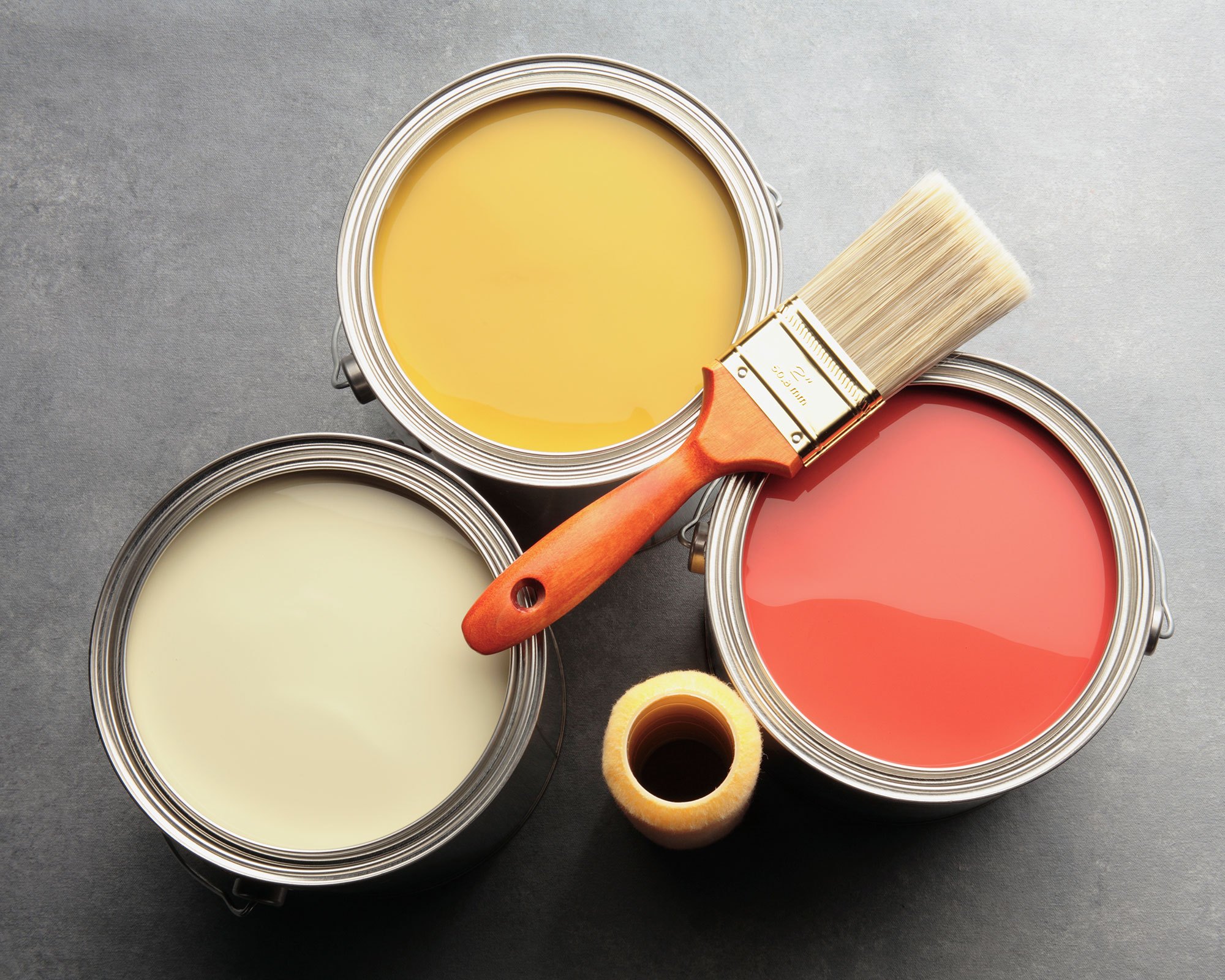
Leftover can be a nuisance. It feels like you should keep it but likelihood is, you won’t have enough left over to make the dregs usable. It isn’t advisable to dispose of cans with wet paint remaining inside in the trash, and leaving paint sitting for years in the shed, garage or attic will only increase clutter.
Paul Karandos, luxury appliance specialist at Universal Appliance and Kitchen Center also has experience selling plumbing and says pouring paint down your drains is an absolute no-go. ‘Pouring paint down your sink even once is a terrible idea,’ says Paul. ‘Not only can this liquid coat the inside of your pipes and keep a smell wafting back up into the kitchen, but it can also catch fire as many types of paint are flammable.’
The team at Drano,, America's number one drain cleaning brand, add, 'Pouring paint down your drains can increase risk of cracking of plastic pipes, or failure of joints or gasket material.'
Replacements for these pipes tend to cost hundreds of dollars.
Design expertise in your inbox – from inspiring decorating ideas and beautiful celebrity homes to practical gardening advice and shopping round-ups.
The answer to how to dispose of paint safely and conscientiously depends on the type of paint you’re dealing with. If your paint is latex or water based, you can leave the paint outside with the can’s lid off somewhere isolated to allow the remaining product to dry. The hardened paint can then be disposed of in your trash.
However, if your paint is oil-based it poses more risks (think about it as a source of fuel for a fire), and counts as a hazardous material. To dispose of surplus oil-based paint we recommend drop it off at a hazardous waste site, offering it to neighbors or family doing DIYs, or seeing if your local thrift store will accept donations. You can also check with local schools or animal shelters if they can make use of the leftovers.
For tricky-to-open paint cans, it can be a lifesaver to have a can opener. The TCP Global Metal Paint Can Opener from Walmart is a popular, highly affordable choice.
2. Cooking oils, grease and fat
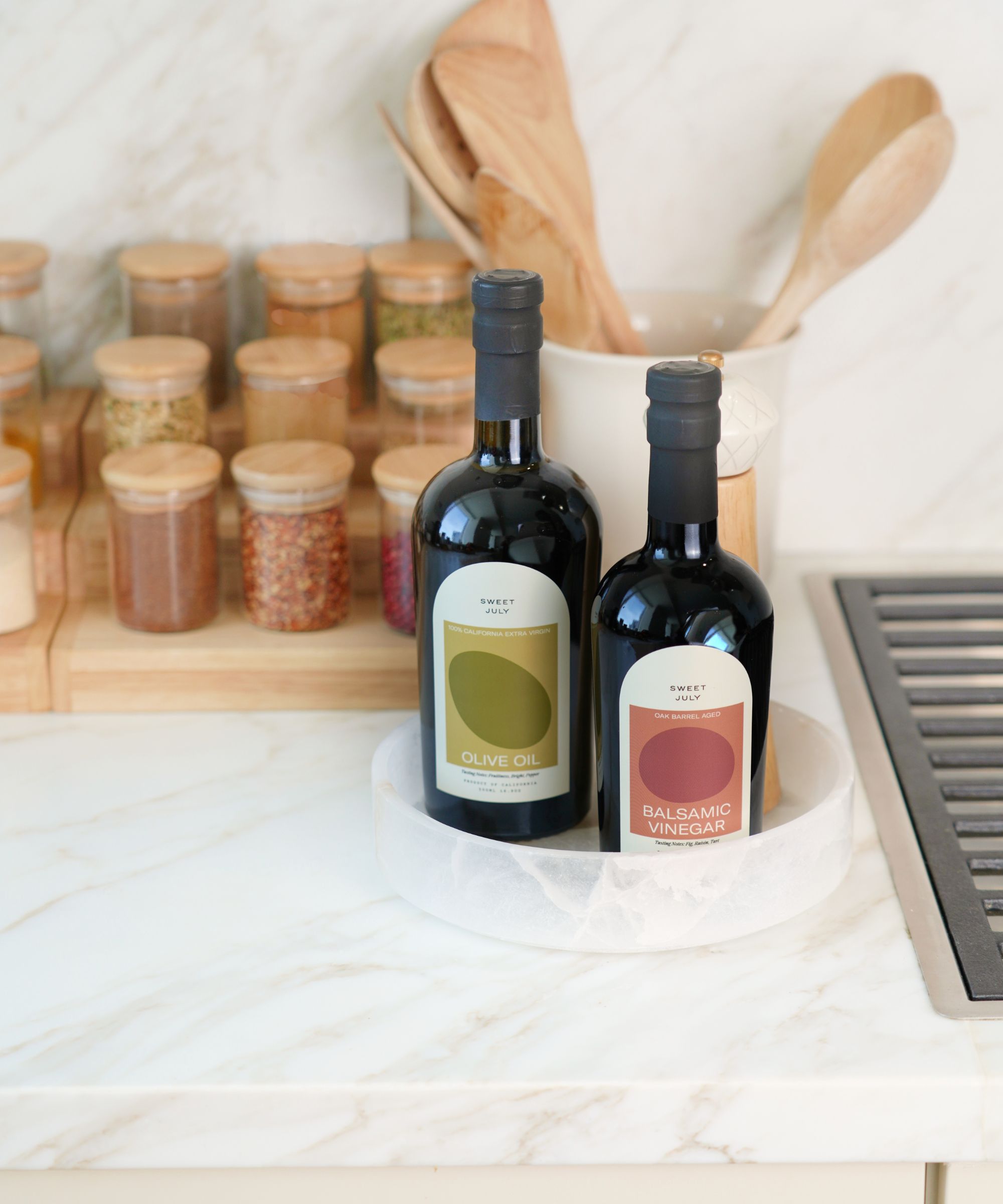
Since you're already in the kitchen and so near the sink, pouring excess greases down the drain may become second nature. But you shouldn’t pour cooking oil down the drain. Doing this is actually one of the most common mistakes people make when it comes to maintaining the health of their pipes.
Tamara Meyer, founder of Nashville Neat Freaks, says, ‘As greases, oils and fats cool down they turn into a solid, so if you pour them down your drain they will solidify and stick to the inside of your pipes. Over time, this build-up can cause major plumbing issues, starting with slower drainage and potentially leading to bursting pipes.’
The videos you see of ’fatbergs’ are real and pouring these liquids down your sink can also add to public drainage issues.
If a pipe bursts due to accumulated, hardened fat, you might face steep costs amounting to thousands of dollars for new piping, plus the price of repairs for any water damage caused by shifting and cracking of pipes – a total nightmare.
Paul uses the analogy of human arteries to further hammer home why grease and drains should never mix. ‘Much like our bodies, those fats can stick and build up in the pipes, leading to blockages and drainage problems.’
If your oils and fats are at the end of their life, unable to be reused, leave them in your kitchen overnight to harden. Then, once they have become solid, scrape them off of your dishes and safely into the trash. You can also make little bowls from aluminum foil, and pour the liquid fat into that, then seal and bin when solidified. Learn more about the ways you can safely dispose of cooking fat.
Drano adds, 'Rather than pouring grease and oils into the drain, you can pour them into sealable containers, and then throw the sealed containers in the trash instead.' This way, the contents of the container can harden separately from the rest of your rubbish and you don't have to leave grease lingering in your kitchen.
Finish off your dish cleaning by using a degreaser, such as the Easy-Off Heavy Duty Trigger Cleaner spray from Target, followed by warm water and soap.
3. Bleach
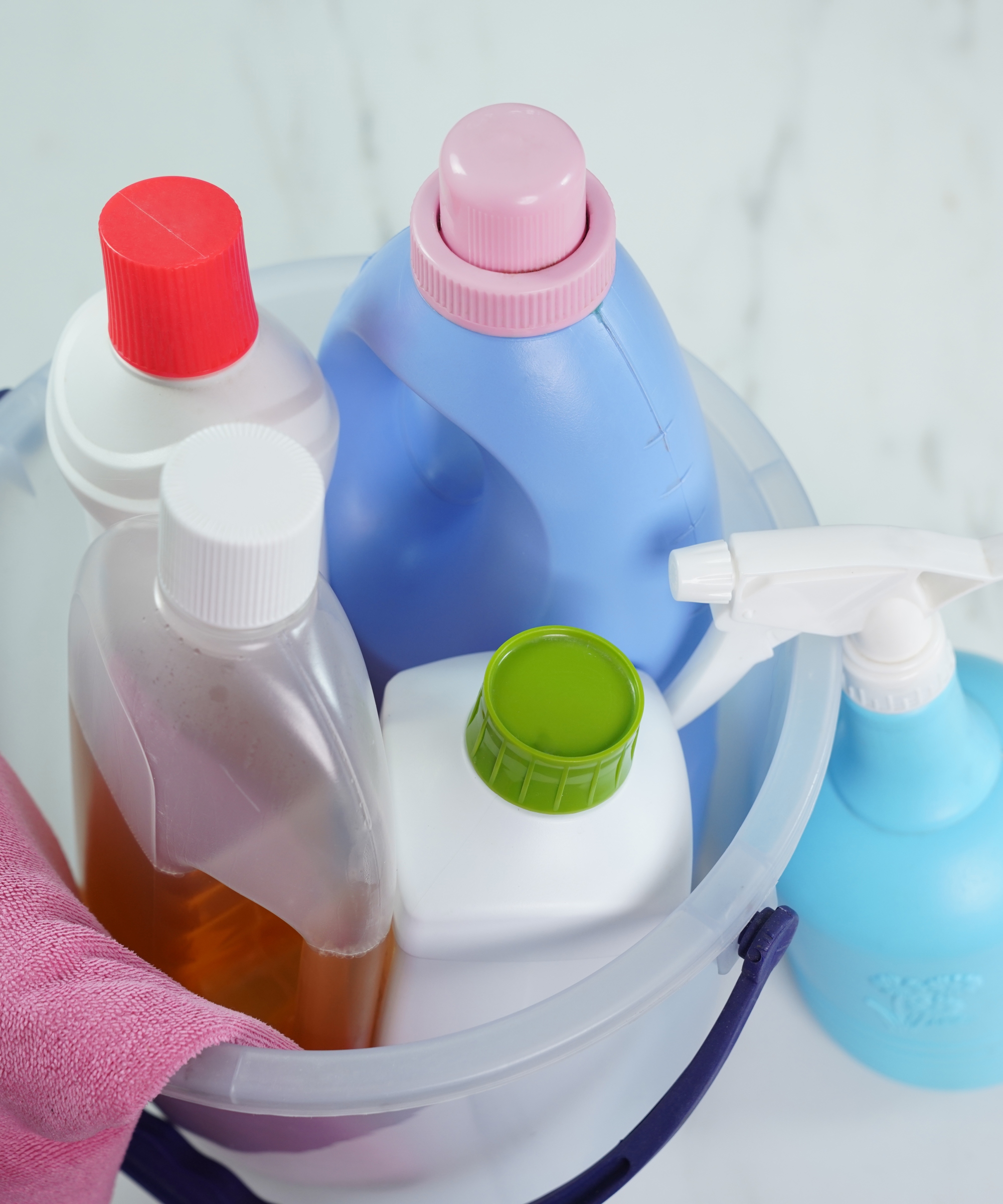
Bleach is a highly powerful cleaning agent, meaning it will be incredibly harsh on your pipes. Your pipes may not seem any worse for wear if you have poured bleach down them once or twice, but you need to remember the impact will build up and you can’t see the damage you’re doing progressively.
‘Bleach can be corrosive to pipes as it’s not only a powerful disinfectant, but also just a generally harsh chemical,’ says Tamara.
If you have poured bleach down your drain, flush it down with plenty of water afterwards to stop the product from lingering and don’t do it again in the future. Instead, dilute the bleach with water and pour small amounts of the product down your toilet or see if a local community center could use the product for its intended purpose.
When handling bleach, be sure to wear non-corrosive cleaning gloves, such as Mr Clean Reusable Latex Gloves available on Amazon and in various stores. It’s also important to check if the other cleaning products you're using are compatible with bleach if multiple are included in your cleaning routine.
Learn about the five cleaning products you should never mix, and why it can prove to be so dangerous.
4. Coffee grounds
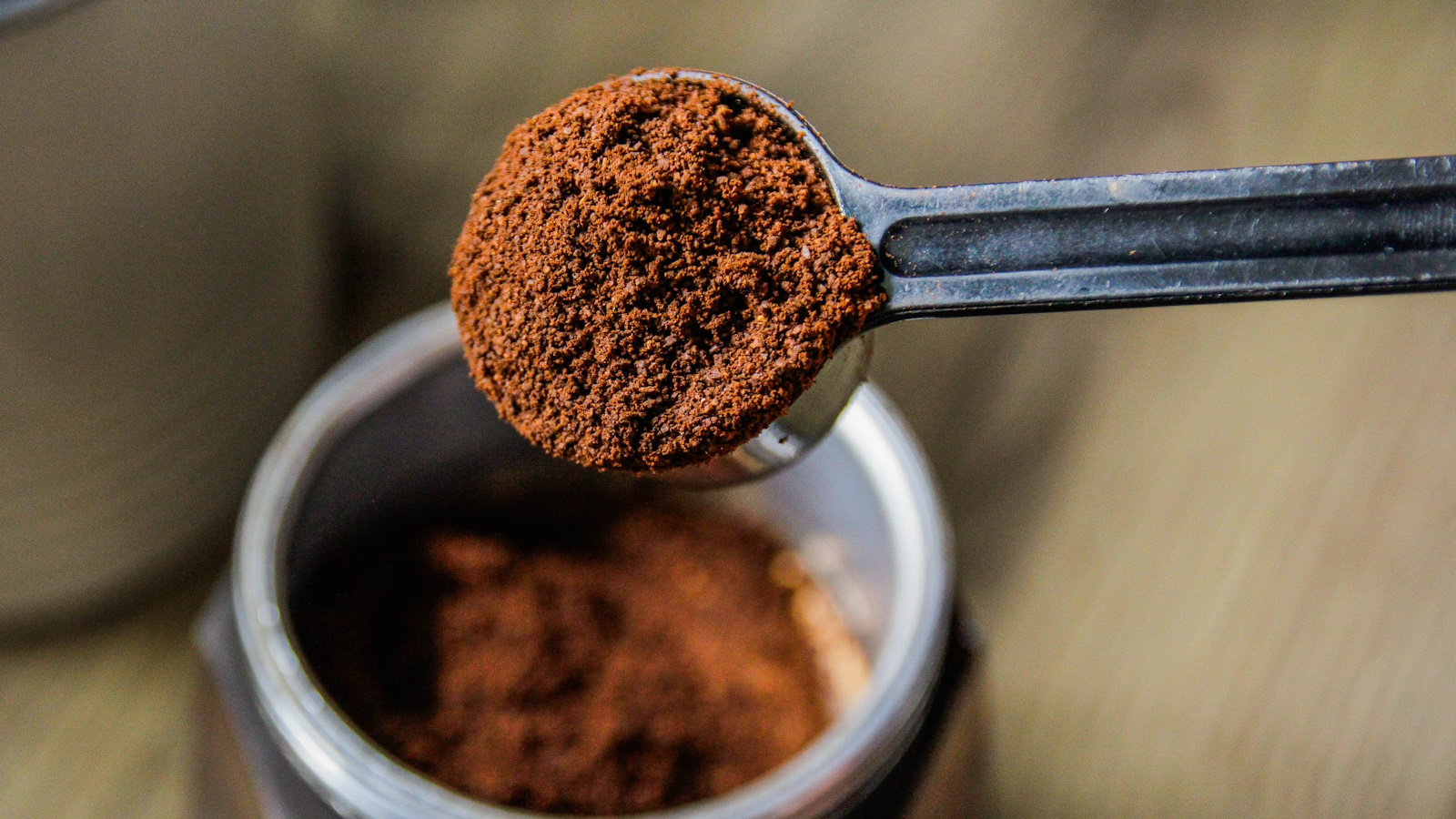
Dumping out your morning coffee grounds may eventually hit your pocket.
‘The solids found in coffee grounds might seem harmless, but they can cause problems too,’ says Tamara. ‘These grounds can build up and create clogs in your pipes, causing slower drainage in your sink relatively quickly.’
Instead, pour your unwanted coffee down the toilet or make use of it in your garden. You may not have known it previously, but coffee grounds are actually compostable and bring many benefits to certain areas of a thriving garden.
Although, if you’re considering this green-fingered approach, it might first be worth reading up on where experts reveal not to use coffee grounds in the garden, as some areas won’t thrive in the same way as others.
Now your home’s drains are well protected, why not consider fixing up your freezer, too? If you’ve ever wondered why your freezer keeps frosting up, experts here provide insight on why it happens as well as tips on how to fix it.

Ciéra is a writer and regional laureate with particular passions for art, design, philosophy and poetry. As well as contributing to Homes & Gardens, she's an Editorial Assistant for Design Anthology UK and a contributing writer for magazines including Livingetc, Apartment Therapy, House Beautiful and Ideal Home. Previous commendations of hers include being Highly Commended by The Royal Society of Literature and receiving a prestigious MA Magazine Journalism scholarship to City, University of London.